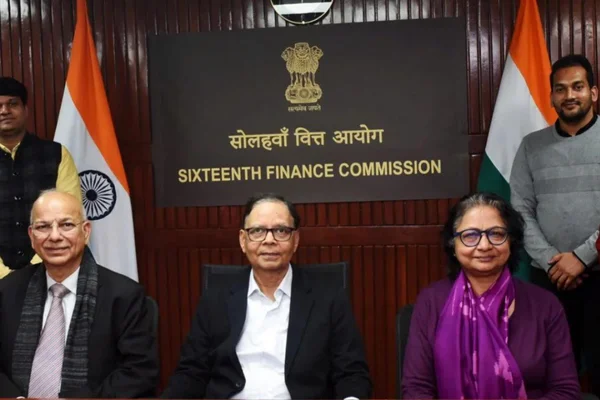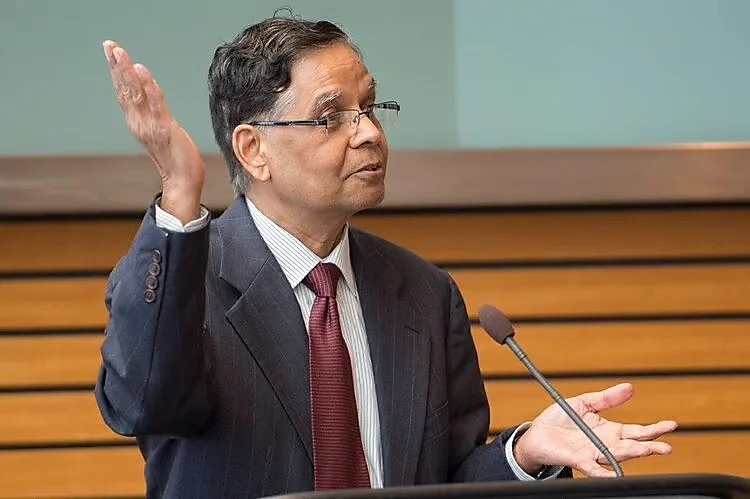The Government of India has recently constituted the 16th Finance Commission, as per Article 280(1) of the Indian Constitution.
About the Sixteenth Finance Commission:
- Dr. Arvind Panagariya, former Vice-Chairman of NITI Aayog, has been appointed as the Chairman.
- 3main areas of focus are-
- Distribution of net proceeds of taxes between Union and States.
- Principles governing grants-in-aid to States from the Consolidated Fund of India.
- Measures to augment the Consolidated Fund of a State for Panchayats and Municipalities.
- The report will cover a 5-year period starting from April 1, 2026.
- It shall review financing arrangements for Disaster Management initiatives, where the funds are provided under the Disaster Management Act, 2005.
It shall recommend for-
- Distribution of net proceeds of taxes as per Chapter I, Part XII of the Constitution and the allocation between the States of the respective shares.
- Principles guiding grants-in-aid to States from the Consolidated Fund of India and the sums to be paid to the States by way of grants-in-aid of their revenues under Article 275 of the Constitution.
- Measures to enhance the Consolidated Fund of a State for local bodies based on State Finance Commission recommendations.
About the Finance Commission:
- The Finance Commission is a constitutional body in India that plays a crucial role in the fiscal federalism of the country.
- It is constituted every 5 years or at such intervals as the President of India may decide.
- The primary function of the Finance Commission is to recommend the distribution of the net proceeds of taxes between the Centre and the States, and among the States themselves.
- It also recommends the principles that should govern the grants-in-aid to the States and other measures needed to augment the Consolidated Fund of a State to supplement the resources of the Panchayats and Municipalities.
Constitutional Basis:
- The Finance Commission is mentioned in Article 280 of the Indian Constitution.
- The President appoints the Finance Commission, and its members include a chairman and 4 other members.
- The President may refer any matter to the Finance Commission for its recommendations and the Commission may also make an interim report if it is requested to do so.
Members of the Commission:
- The Chairman should be a person having experience in public affairs.
- The 4 other members should be selected from amongst the following-
- A judge of high court or one qualified to be appointed as one.
- A person who has specialised knowledge of finance and accounts of the government.
- A person who has wide experience in financial matters and in administration.
- A person who has special knowledge of economics.
Criteria for Distribution:
- The Finance Commission uses certain criteria for the distribution of funds, including population, area, and income distance.
- The Commission also considers the fiscal capacity and efficiency of states, the impact of fiscal policies, and grants for local bodies.
- The Commission reviews the financial position of the Central and State governments, taking into account the debt situation, revenue and expenditure requirements, and other relevant factors.
Report Submission:
- The Commission submits its report to the President, and the recommendations of the Commission are then laid before both Houses of Parliament.
- The recommendations made by the Finance Commission are only advisory in nature and hence, not binding on the government.
Ref: Source
| UPSC IAS Preparation Resources | |
| Current Affairs Analysis | Topperspedia |
| GS Shots | Simply Explained |
| Daily Flash Cards | Daily Quiz |



